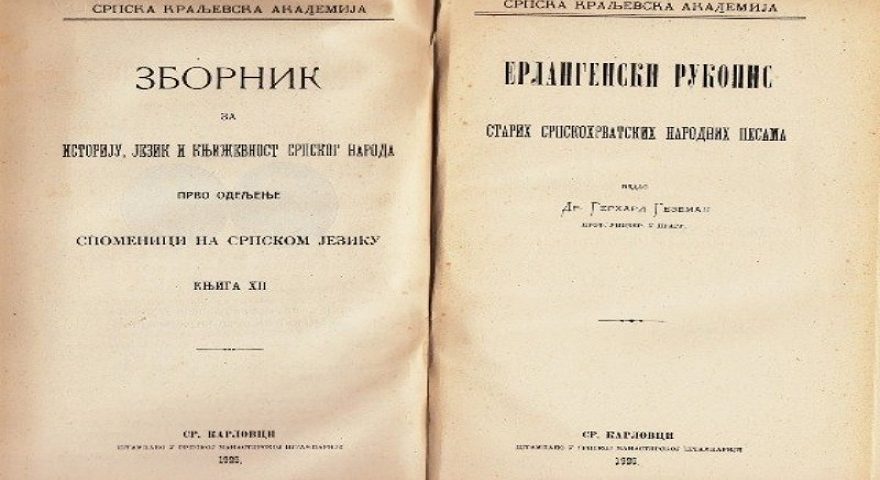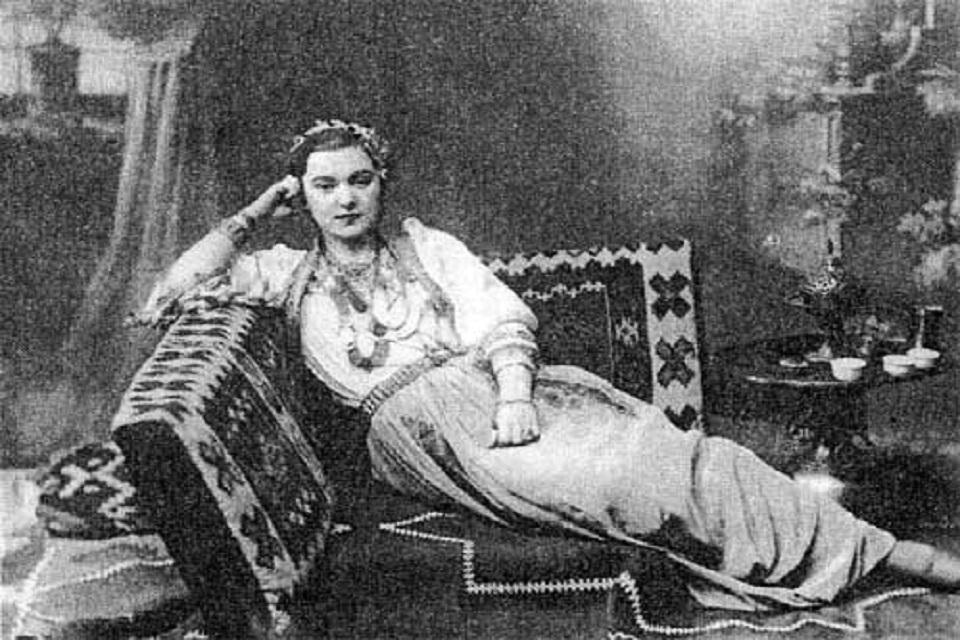The Erlangen Manuscript is a collection of folk songs in Croatian, Serbian and Bosnian.
It contains 217 songs: ten belong to the folk poetry, the others are original folk songs.
The manuscript was discovered in 1913 in the library of the German city of Erlangen and given to Erich Bernecker, a professor of Slavic philology in Munich, with the instruction to determine the author and origin of the collection.
Bernecker forwarded the instructions to his younger colleague Gerhard Gesemann.
At first glance, the writings seemed to be sacral-church songs, since they had been written in so-called diplomatic Cyrillic script.
In the course of the process, however, it turned out that they were lyrical love songs and epic heroic songs and ballads.
Gesemann arranges them into the period of the beginning of the 18th century, but he does not succeed in finding information about the author. He assumes that they were written down by a soldier, presumably in the border area between Austria-Hungary and the Ottoman Empire, which in this way must have come into contact with the oral traditions in these areas. It is also possible that the manuscript was written on order of a nobleman or a commander, although the possibility of a gift order cannot be excluded.
The first printed version was published in 1925.




